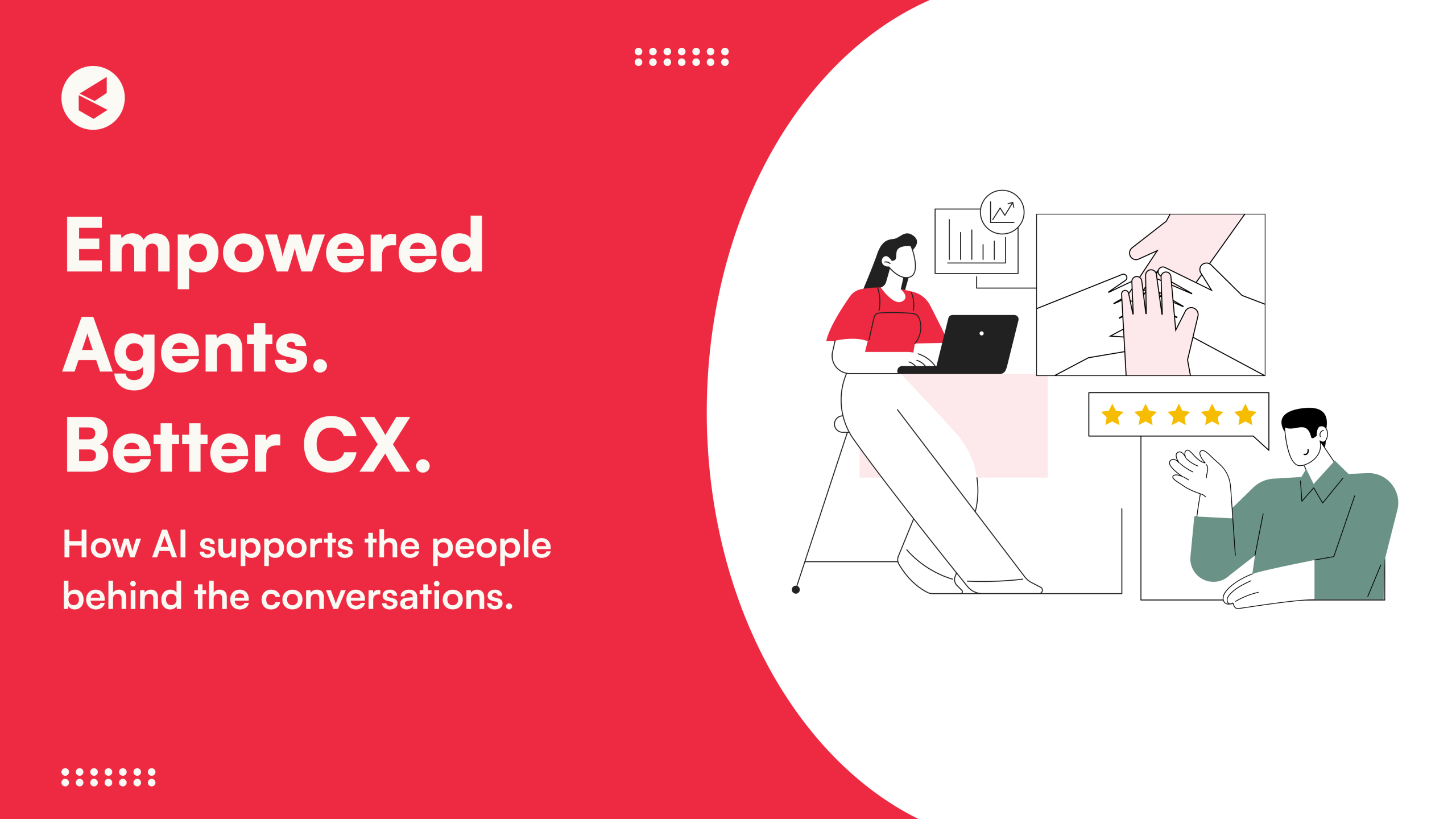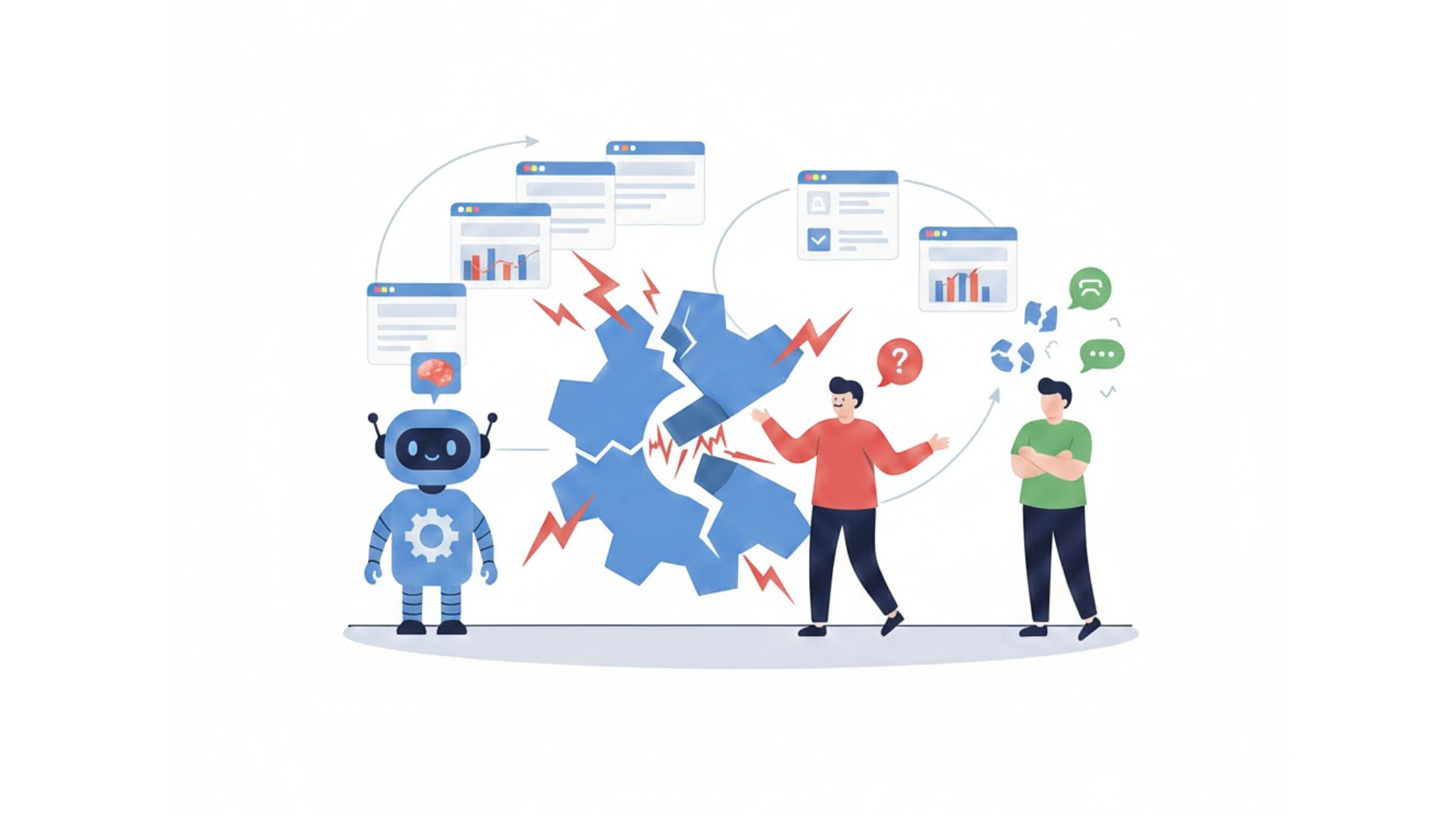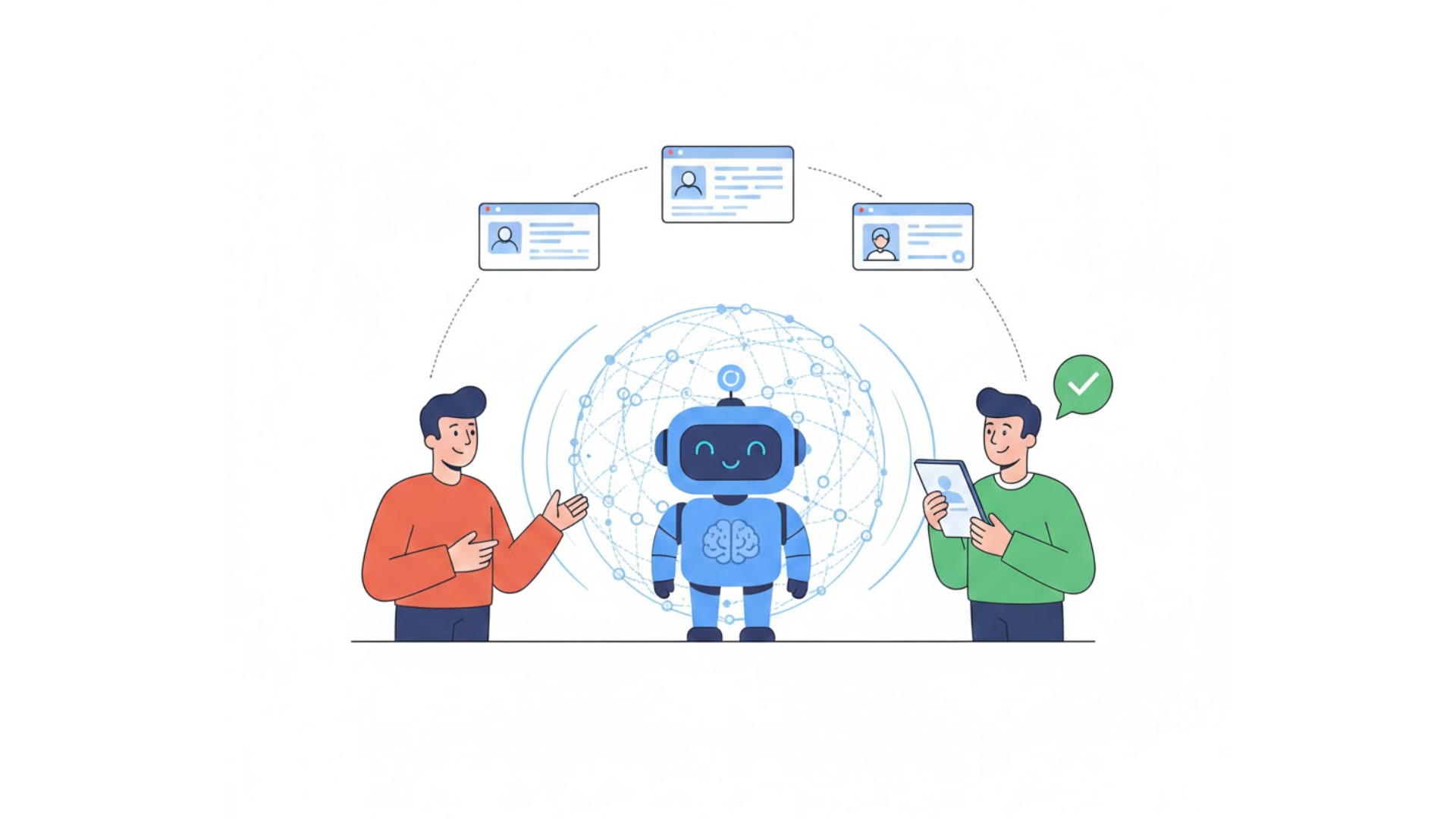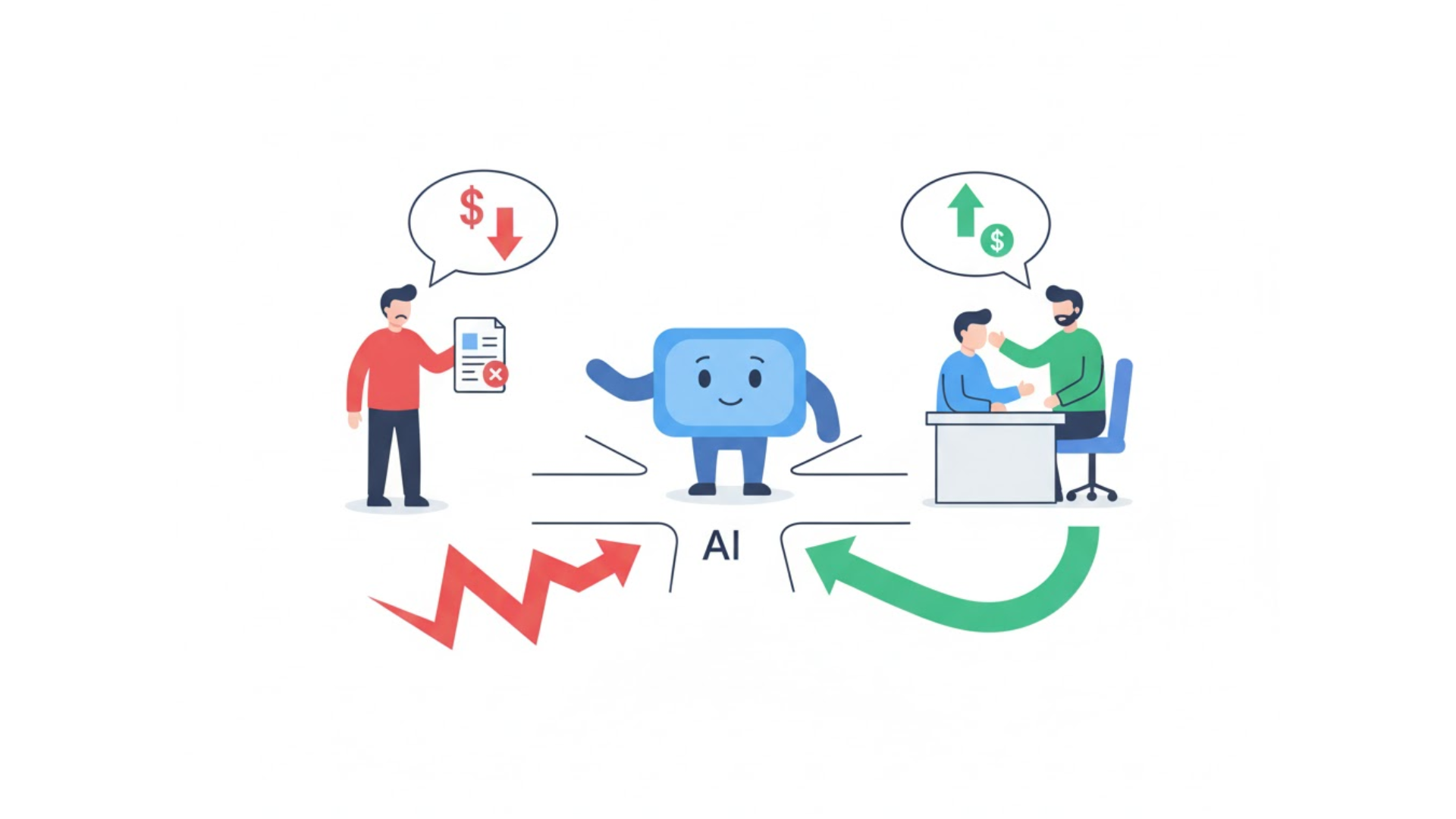It’s not hard to see why so many support agents feel overloaded. The pace of incoming requests keeps climbing, and customers don’t stick to one channel—they expect quick answers whether they’re on chat, email, or social.
It’s not just the volume that’s exhausting; it’s the mental gear-shifting. Unlike before, many agents are now doing this from home, without a teammate nearby to lean on or ask for a quick second opinion. That lack of real-time support makes the job feel a lot heavier.
According to a recent survey by DigitalGenius and Censuswide, over four in five call center staff say the stress of their role affects their mental well-being. Additionally, nearly 95% of respondents reported a dip in productivity because of it.
That’s prompted many companies to rethink how they support their frontline teams. Rather than just managing workloads, they’re starting to improve the overall agent experience. AI adoption is playing a key role in this change. Not as a replacement, but as a helpful partner—taking care of repetitive tasks, guiding agents in real time, and helping build a more balanced work environment.
In this article, we’ll look at how smart use of AI is helping teams turn high-stress environments into spaces that empower agents and boost long-term performance.
Defining EX in the CX World
In today’s experience-driven economy, customer satisfaction no longer depends solely on products or pricing—it’s increasingly shaped by the quality of service and interaction. At the heart of this service is the employee. That’s where Employee Experience (EX) becomes a critical driver of Customer Experience (CX).
EX refers to the complete journey an employee has within an organization—from recruitment and onboarding to daily workflows, tools, team dynamics, and professional growth. How employees are treated inside the organization often reflects how they treat customers. Teams that feel trusted and supported tend to show more care, not just in tone but in how thoroughly they handle each interaction.
A Gallup study that examined data from over 183,800 business units found a clear link: Companies with the highest employee engagement earned 23% more profit than those with the lowest. The takeaway isn’t just about numbers—it’s about consistency. Engaged teams stick around longer, take more initiative, and often help build stronger customer relationships over time.
The benefits of a strong EX strategy extend beyond engagement alone:
- When agents feel confident and in control, they tend to be more consistent in how they help customers. That confidence often translates into clearer communication, better listening, and more thoughtful responses.
- A healthy work culture goes a long way toward retaining staff. When people feel genuinely supported, they’re less likely to burn out or leave. Customers also notice the difference when familiar, experienced agents stick around.
- People who enjoy what they do don’t just show up for the job—they talk about it. Whether it’s with customers, peers, or their own circles, that kind of organic positivity can quietly build trust in your brand.
- With practical tools and steady support, agents can resolve issues more quickly and with fewer hand-offs. The result is smoother operations and a better experience on both sides of the conversation.
The AI Advantage: How It’s Transforming Agent Experience
Call centers have always been intense, fast-moving, unpredictable, and often emotionally draining. As more customers expect near-instant help across more channels, the job’s only gotten tougher. Agents are expected to move fast, give personalized responses, and solve problems wherever the customer happens to be: chat, phone, email, or social. That’s a lot to ask, especially when the systems around them haven’t always kept pace.
That’s where AI is starting to make a real difference. It’s not stepping in to take over—but it is stepping up to help. Think less “robot takeover” and more of a smart co-pilot that’s there when the agent needs it.
1. AI-Powered Agent Assist
These tools are like a second brain in the background. While the agent focuses on the conversation, AI works behind the scenes, spotting key details and offering timely nudges when something useful comes up. It’s not flashy or disruptive, but in the middle of a fast-moving exchange, that kind of low-key backup goes a long way.
Some platforms now offer live, on-screen prompts based on what the customer says. That might mean less time spent searching and more time actually listening. Over time, this kind of support doesn’t just speed things up—it helps agents feel more confident in the moment, which customers can absolutely sense.
2. Intelligent Ticket Routing & Prioritization
AI-driven routing systems go beyond assigning tickets by availability. They analyze customer data, ticket content, and even sentiment to send the query to the most appropriate agent. This guarantees quicker resolutions and a more suitable alignment between agent expertise and customer needs.
AI can automatically tag, prioritize, and route tickets based on their urgency and complexity, reducing time to resolution and improving agent productivity. It also helps balance workloads across the team, preventing burnout caused by uneven case distribution.
3. Self-Serve Tools for Agents
Agents also benefit from self-service. AI enables internal knowledge bases and automation tools that help agents resolve issues without depending on escalations. By presenting pertinent documents or pre-approved workflows, agents can expedite decision-making and enhance their confidence.
AI solutions equip agents with smart suggestions and readily available resources. This accelerates resolution times and builds trust and agency across support teams.
4. Voice Bots & Chatbots for Tier-1 Queries
AI-powered bots are now handling a large share of Tier-1 support—simple, high-volume tasks such as password resets, order tracking, or appointment confirmations. This frees up human agents to handle complex, emotionally sensitive cases where empathy and problem-solving are important.
AI chatbots can manage many customer conversations, doing the work of roughly 700 full-time agents. This kind of automation reduces the pressure on support teams while maintaining 24/7 customer responsiveness.
5. AI for Feedback & Well-Being Insights
Modern tools can monitor employee sentiment through tone analysis, survey responses, or conversation trends. AI platforms can use conversational surveys to gather frequent feedback and detect early signs of burnout or disengagement.
This helps leaders take proactive steps to improve team morale, reduce turnover, and support a positive work culture. These insights are important in an environment where mental well-being is closely tied to performance.
Human + AI: Not Replacement, but Reinforcement
AI often comes up in conversations about replacing jobs, especially in support roles. But that’s rarely how it shows up in a customer service setting. Most of the time, it’s working behind the scenes—helping direct inquiries, pulling up useful account history, or keeping systems organized in ways that save time. It’s not the kind of help that gets noticed immediately, but agents feel the difference. With less clutter to manage, they can stay focused on the actual conversation.
What makes this collaboration work is timing and context. Instead of operating in isolation, AI tools now step in during live interactions—surfacing relevant information, offering quick prompts, or detecting changes in tone.
The effect is not just operational. Agents experience less strain when they’re not managing every small detail on their own, and customers benefit from smoother, more responsive service. Rather than replacing the human element, AI reinforces it—quietly helping teams perform at their best.
Conclusion
The future of customer support isn’t about automation alone; it’s about collaboration. When AI takes care of the repetitive, it gives your human agents the time and tools to focus on empathy, insight, and resolution. Together, this creates an experience that’s faster, smarter, and more human.
Kapture CX is built to support that transformation. From AI-powered agent assistance to intelligent routing and predictive analytics, it helps you strike the right balance between automation and human touch.
Book a personalized demo to see how Kapture CX can elevate your customer support operations.















